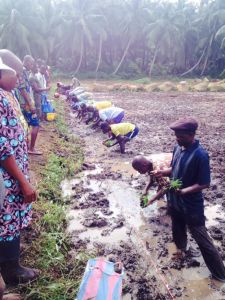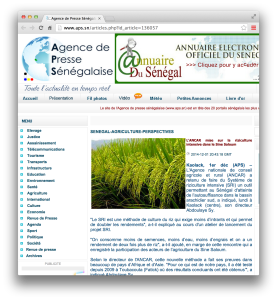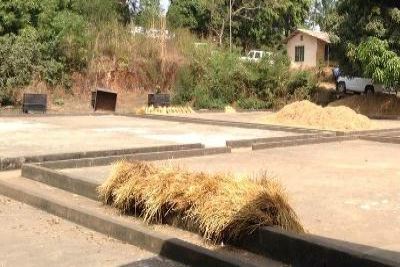A delegation from the SRI West Africa project of the WAAPP traveled to Asia at the end of October to partake in a series of workshops, field visits, and the 4th International Rice Congress (IRC 2014) – the largest worldwide gathering devoted solely to rice production.
Hosted every four years by the International Rice Research Institute (IRRI), the focus of IRC 2014 was largely on scientific research, with talks and poster presentations from hundreds of delegates representing all parts of the rice producing world. While research and industry were most prominent throughout the congress, farmers organizations were present as well, including representatives of West Africa’s ROPPA. This iteration of the IRC was held in Bangkok, Thailand.
The Regional Coordination Unit presented a poster on the WAAPP’s SRI project, and participants from the project included Gaoussou Traoré (Regional Coordinator, CNS-Riz), Minamba Bagayoko (CNZ-Riz), Erika Styger (SRI-Rice) and Devon Jenkins (SRI-Rice), . Two workshops were held in conjunction with the IRC: a pre-congress workshop on international collaboration to advance SRI (co-sponsored by Oxfam International and Cornell University’s SRI-Rice Center), and a post-congress workshop covering SRI mechanization around the world (co-sponsored by the Asia Institute of Technology and SRI-Rice). The mechanization workshop included a field visit to the Thai Weekend Farmers’ Network to see their innovative mechanization and transplanting approaches to SRI, including ‘dart’ transplanting.
Participating in various parts of the trip were Dr. Gaoussou Traoré, Dr. Erika Styger, Dr. Minamba Bagayoko, Ousmane Djiré, and Devon Jenkins. After the workshops some members of the West Africa SRI contingent visited SRI project sites in India while another visited project sites in Thailand.
Images from the two workshops and the IRC:

Participants in a breakout discussion during the pre-congress workshop.
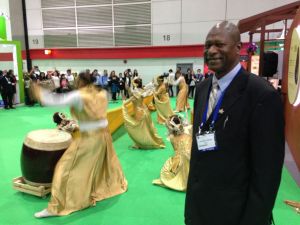
Gaoussou Traoré, the project’s Regional Coordinator, enjoying a performance of traditional Thai dancers at the International Rice Congress.
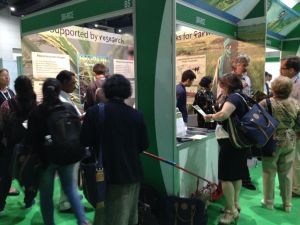
Congress attendees coming by the SRI booth at IRC 2014.
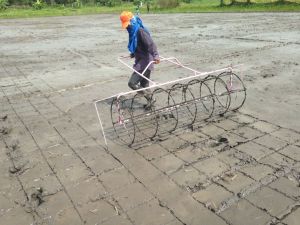
A roller demonstration during a field visit to the Thai Weekend Farmer’s Network on the second day of the mechanization workshop.

Mechanization workshop participants trying out a labor saving innovation called ‘dart’ transplanting.
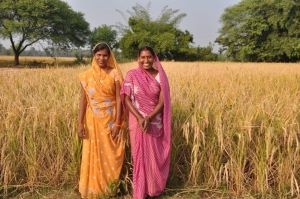
SRI farmers in India met during a visit by Dr. Erika Styger and Dr. Gaoussou Traoré.








